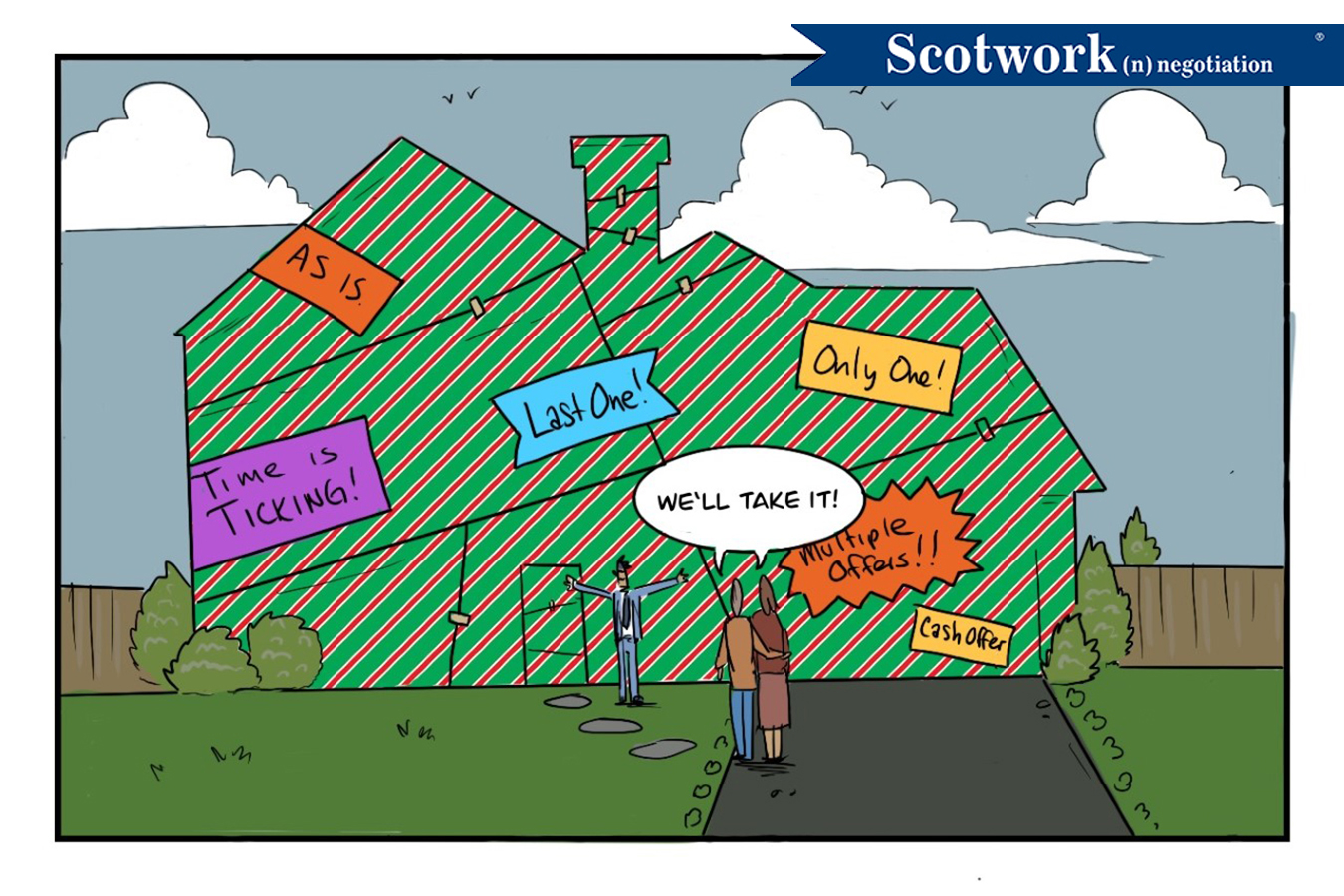The 2021 housing market was the most lucrative — and competitive — in US history. My town is a prime example, with properties selling through blind bids and regularly going for 25% to 30% over asking price. Few purchases in life are more emotional than the place you will be calling home. As such, emotion is driving much of this behavior, which is risky considering the financial commitment involved.
A recent survey found that millennials were, indeed, willing to make rash decisions to afford a home, including buying sight unseen and offering over asking price. Nearly half of millennial buyers expected to exceed their budget in order to secure their dream home. Conversely, 1 in 4 who already own a home regret that their mortgage is too expensive.
These dilemmas remind me of when I moved to the US with my young family in 2010. Naturally, we needed somewhere to live, and while we were somewhat flexible, we did have a couple of non-negotiables:
- The town: We’d done extensive research and concluded that Montclair, New Jersey, was the place for us. It had a great school system, but more importantly, it just felt right.
- A house, not an apartment: We’d come from a house in the UK and had two small children. We needed a house with a yard.
When we began looking for places to rent, though, we quickly hit a wall. Most of the rentals were apartments, and the available houses were far too big and way outside of our budget.
After several months spent futilely searching, we grew disheartened — even questioning our decision to move to the US. Still, we put our emotions to one side and decided to change strategy. There were a few places for sale that we thought we might be able to afford. That’s when we considered buying.
We quickly found a place we liked, and our offer was accepted. So far, so good! Now we just needed to secure financing. That’s when we hit another wall. Remember, this was 2010, not long after the financial crisis. We’d just arrived in the US, so we had no credit history. Despite a decent deposit, no bank would give us a loan.
Again, despair crept in. If we couldn’t get a loan, we couldn’t buy. We were ready to give up. In fact, my wife said as much to one of her friends, who advised us to go back to our broker and ask what it would take to get a mortgage. The broker said that, for a cheaper property and a 40% deposit, he could get us the remaining financing. So, we pivoted again, this time refinancing our property in the UK, where we did have good credit, releasing enough cash for the higher deposit. Soon after, we found another property within the range set by our broker and secured the deal.
The experience reminded me of several important lessons about negotiation:
- Identify your must-haves. In my case, it was a house with a yard in Montclair. Knowing this helped me to remain focused, including where I could be more flexible. For example, the house we bought had no garage (for my bikes!). I really wanted one, but it wasn’t a must-have.
- Don’t give up. Change strategy. We had planned to rent. It would have been less risky, and I would have preferred not to refinance my house in the UK. But deciding to buy instead was necessary to get what we wanted and well worth it in hindsight.
- Know your limits (and stick to them). In my case, the limit was set for me, but it helped to focus our search on only those properties that we knew we could afford. For the home buyers in the survey who went over budget and then regretted it, having a red line they weren’t prepared to cross may have helped them keep emotion at bay and make a more rational decision in the moment.
And of course, beware your emotions. When we get emotional, we can’t think straight. We either make rash decisions (going over budget) or just give up (like I nearly did). Fortunately, my wife’s calm and lucid friend encouraged us to curb our emotions and explore other ways to achieve our objective, and we are still living happily in the same home 12 years later.
We Can Help Your Team Overcome Obstacles on Their Way to More Valuable Deals.
Do your dealmakers ever become overwhelmed by emotion when they encounter obstacles in their negotiations? All negotiations have challenges — it’s how your team handles them, via the skills they bring to the table, that can turn a deal into a valuable deal. We can help! Drawing on nearly 50 years of real-world negotiating experience, we’ll assist you with getting better deals, saving time, and creating value for all involved — not to mention preserving and even strengthening relationships. Let us partner you with one of our advisers, ensuring that you’ve got the broadest view of your deal.

